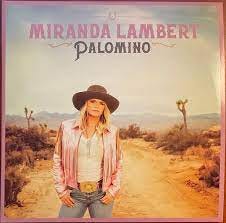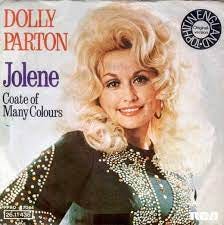In the years since the release of her debut album Kerosene in 2005, Miranda Lambert has built one of the more impressive bodies of work in country music. This is not only because she’s a charismatic performer; it’s also because she’s proven to be a steadily productive songwriter who plays well with others, among them Ashley Monroe and Angaleena Presley of the Pistol Annies, as well as solo artists Jack Ingram and Jon Randall, with whom she recorded the stripped-down Marfa Tapes last year. As one observer recently noted, “If you ever wondered what it’s like to watch Loretta Lynn or Johnny Cash in their heyday, well, it looks a lot like watching Lambert do her thing right now.”
The obvious template for Lambert—indeed, the standard point of comparison for any female country star in the last half century—is Dolly Parton. Parton, of course, is a legend, not only as one of the greats of country music, but also as someone who has attained fame far beyond her ambit as an entrepreneur, a screen star, and as, well, just one of those people who light up a room. Lambert, who has also started a number of businesses, shows less interest than Parton in wandering far from her core talents as a musician, though she has an entrepreneurial streak. But the real point of comparison is in the two women’s core talents of making records.
Parton has written any number of gems in the last sixty years, among them “Coat of Many Colors” (1968), “I Will Always Love You” (1974), a huge hit for Whitney Houston in 1992, and the irresistible feminist anthem “9 to 5,” theme song to the 1980 hit movie of the same name. (Check out the way typewriters perform as percussion.) But near if not at the top of any such list is her 1973 hit “Jolene,” which has been covered many times (a particularly memorable version is the one Parton herself recorded with Pentatonix in 2016). The contrast between its grave minor-chord progression and the sweetness of Parton’s vocal is an important backdrop for the lyrics, which are stunningly direct in the narrator’s plea to the title character:
Your beauty is beyond compare
With flaming locks of auburn hair
With ivory skin and eyes of emerald green
Your smile is like a breath of spring
Your voice is soft like summer rain
And I cannot compete with you, Jolene
“Please don’t take him just because you can,” she implores her nemesis.
The power of the song, paradoxically, is a function of its unflinching vulnerability. The capitulation to Jolene is complete—except in the raw emotional force of the appeal. Few of us would dare to be so honest, an honesty that’s notable for its clear-eyed assessment of Jolene’s erotic power (which is available for deconstruction as homoerotic). The drama of the moment makes you snap to attention—particularly because the song unfolds in media res, and with no indication of how it will resolve.
It's not really possible to have a hit song like “Jolene” in 2022. The imperatives of female agency and solidarity are too important—indeed, are too internalized—for most people, male, female, or nonbinary, to etch such a portrait. Actually, the song is shocking even by pre-feminist standards. It would be foolish, if not offensive, to even try something like it. There have in fact been a number of musical replies to “Jolene,” most notably Cam’s 2017 song “Diane,” in which Jolene says she had no idea she was stealing someone else’s man. This is a somewhat unconvincing premise, since Parton’s song takes the form of a direct address to this character, and requires you to believe Jolene was entirely ingenuous—which seems unlikely.
Miranda Lambert goes about grappling with “Jolene” in a different way. Lambert knows her history, musical and otherwise. Born in an age of second-wave feminism, she has absorbed much of its values. Part of this involves asserting traditionally male prerogatives, notably in the hard guitar edges in so many of her songs. (It seems no great stretch of the imagination to see her inducted into the Rock & Roll Hall of Fame circa 2030.) In “To Learn Her,” a track from her masterful 2016 double-album The Weight of These Wings, Lambert essentially rewrites Tammy Wynette’s 1968 classic “Stand by Your Man” as a parable of male, rather than female, stoicism, illustrating the tensile flexibility of this out-of-fashion virtue even as she honors its source.
Lambert does something comparable with “Geraldene,” her answer to “Jolene.” There can be no question of her admiration for Parton—“Dolly is a big one for me,” she told Esquire this spring—and the two sang a duet of Parton’s 1967 song “Dumb Blonde” for the Netflix movie Dumplin’ in 2018. But Lambert stakes out decidedly different turf in the way she imagines her own Jolene, illustrating changes in cultural values even as she affirms the resonance of Parton’s work.
Like other songs from her new album Palomino, “Geraldine” began its life on The Marfa Tapes, which Lambert co-wrote with Ingram and Randall. That version was acoustic, but this one opens with a loose, rangy, ZZ Top vibe. With impressive color and economy, Lambert etches her antagonist with a clarity that rivals Parton’s, even as this one is much more skeptical:
I could see you coming all the way from Amarillo
Truck stop, red lips pullin’ on some nicotine
Shining like the spokes on a brand new El Dorado
You’re trailer-park pretty, but you’re never gonna be Jolene
“Why you got to be so mean?” the singer asks Geraldene in the chorus, which accelerates into a hard rock riff. But in a way, it doesn’t matter, because this narrator will fight and win: “Don’t make me cause a scene,” she tells her. “You can’t take a man from me.”
With “Jolene,” you’re riveted by the scenario and feel instinctive protectiveness for its narrator. But with “Geraldene,” you’re thrilled by the character’s confident power:
If I was a man I’d make you my Dallas Alice [whore]
I’d put a leftover pawnshop ring on your left hand
You’re never gonna be the backstage babe at the Crystal Palace
You’re too late baby, I’m the only bitch in the band
Once upon a time, “the bitch in the band” was a groupie claiming (tenuous) membership in a boys’ club. But there’s a metatextual overlay here, in that we know that the artist who invented this character is the frontwoman of her own ensemble. She speaks a language of empowerment about love—and much else.
That said, Lambert, like the best artists, is far more interested in the humanity of her characters than confirming shibboleths. Her songs veer between sass (“Little Red Wagon,”; “Pretty Bitchin’”) and self-loathing (“Bathroom Sink”; “Ugly Lights”), laced with sharp homespun humor (“It All Comes Out in the Wash”; “Too Pretty for Prison”). She pulls it all off convincingly. Hers is a twangy Texas voice well worth a careful listen.
With thanks to my brother-in-law, Hal Sizer, for introducing me to Miranda Lambert.




I love Jolene for its raw emotion and will have to check out Geraldine. Have you heard Lil Nas X's cover of Jolene. So compelling and powerful. https://www.youtube.com/watch?v=RWjnC8HSRdU